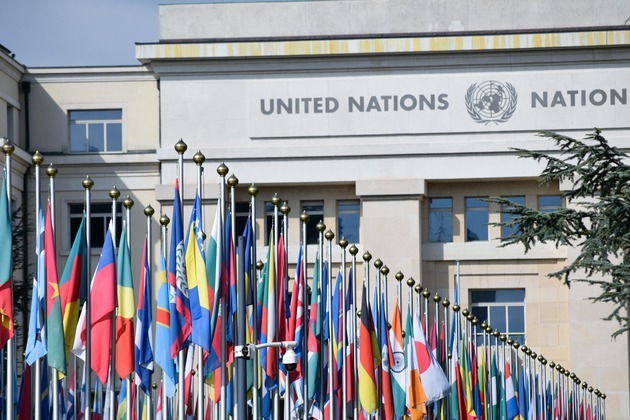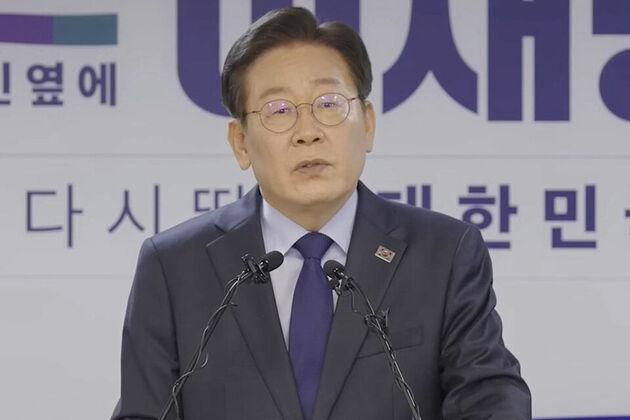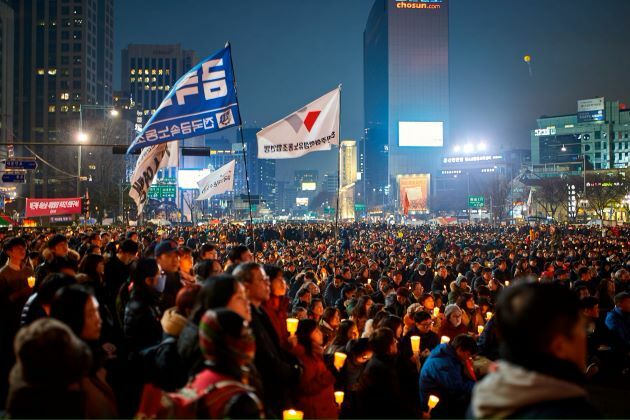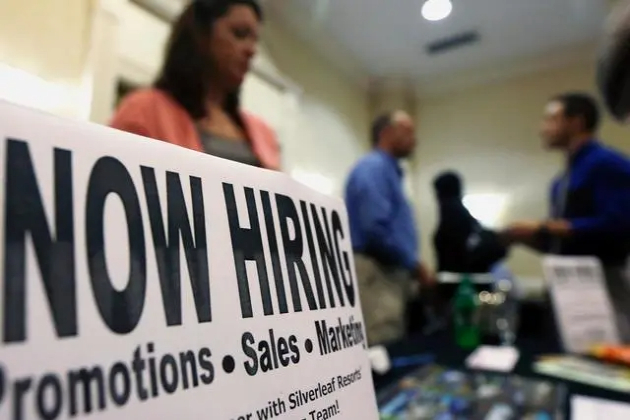Mexico transformed? Challenges, changes after a year of leftist government
The Conversation
12 Dec 2019, 00:01 GMT+10
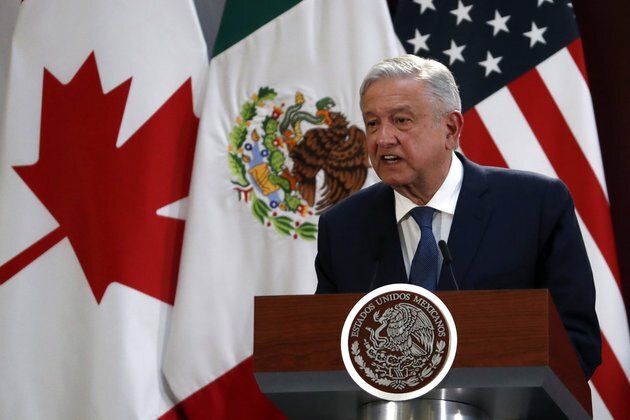
A year ago, the first leftist president in Mexico's modern history took office.
The victory of Andres Manuel Lopez Obrador, commonly referred to as AMLO in Mexico, swept aside a long-standing political establishment in a society where most politicians are seen as corrupt and detached from the reality of ordinary citizens.
Lopez Obrador's victory not only threatened the entrenched political and economic interests that dominated Mexican politics for decades, it also came as a reprieve to an embattled left in Latin America at a time when right-wing forces were on the rise.
The transformative project of the new government, dubbed Mexico's "Fourth Transformation," has promised to break with the neoliberal model that had turned the country into the most unequal among OECD nations. This has meant a drastic change in policy priorities.
Under Lopez Obrador, the government no longer promotes investment and job creation at any price. Instead, it announced the largest increase to the minimum wage in 36 years, passed a major labour reform strengthening workers' rights and ended decades of discretionary tax breaks to large corporations. These measures have unsettled some economic elites, who are now hesitant to invest in a country that is changing the rules of the game.
Lopez Obrador seems aware that the surly relations between the government and the private sector can hinder his transformative agenda. Despite his campaign promise of a four per cent annual growth, the economic scenario in Mexico is daunting. As the country struggles to avoid recession, rating agencies and international organizations are lowering their outlooks for the Mexican economy.
This is why Mexicans were so prompt to ratify USMCA, a renegotiated version of NAFTA, and its subsequent overhaul, despite the free-trade deal being at odds with Lopez Obrador's anti-neoliberal stance.
The rapid ratification of the trade agreement not only sent a message of certainty to domestic and international investors, it also flagged the limits of the AMLO government when it comes to breaking with Mexico's neoliberal past.
Violence persists
A second threat to Lopez Obrador's agenda is the rising levels of insecurity in the country.
The new administration has been unable to contain a wave of violence that it inherited from its predecessors. In fact, 2019 is on the verge of becoming the deadliest year on record in Mexico. The massacre of the LeBaron family -in which six children and three women were murdered in northern Mexico - and the failed attempt to arrest the son of drug lord El Chapo in Culiacan, where the military was outnumbered by cartel gunmen, are just two examples of the government's incapacity to end the violence.
The president's "abrazos, no balazos" (hugs, not bullets) policy has been harshly criticized for its naivete and has been largely ineffective.
Read more: Mexico's new president has plans to make his country safer - but will they work?
However, one year into leftist rule in Mexico and it's not all bad news. Despite economic woes and enduring violence, Lopez Obrador's government has made considerable progress dismantling a system that almost solely benefits the political and economic elite and keeps more than 50 million Mexicans in poverty.
Lopez Obrador started his term by announcing harsh austerity measures to bureaucrats and politicians, including cutting his own salary in half and ditching the presidential mansion, jet and guards.
Tackling corruption
In a clear break with the past, his government is prosecuting corrupt officials from previous administrations. Social spending is also being revamped. About 18 million youth and elderly Mexicans are now receiving their scholarships and pensions from social programs as cash transfers.
Perhaps most importantly, Lopez Obrador is transforming the perception of political power in Mexico and how it should be used. At most events he attends, the president finds himself surrounded by supporters who cheer and hug their leader without apparent constraints - in contrast to the strong security measures taken by his predecessors when in public.
When asked about his safety, Lopez Obrador confidently replies that it is the people who look after him. Despite his populist tone, he seems to understand that first and foremost, Mexico's marginalized majorities need to be seen and recognized as part of a society that has excluded them for too long.
If we want to understand the change Mexico is undergoing, we must measure progress with metrics other than the GDP. Only when we gauge it via other methods will we understand the extent to which the political and economic structures that have made Mexico one of the most inequitable countries in the world are being dismantled.
Changing public perceptions about political power might not be as tangible as economic growth and decreasing homicide rates, but its impact on building a more inclusive society are real and every bit as important.
[ You're smart and curious about the world. So are The Conversation's authors and editors. You can read us daily by subscribing to our newsletter. ]
Author: Sergio Daniel Michel Chavez - PhD Student, Department of Political Science and Institute of Political Economy, Carleton University 
 Share
Share
 Tweet
Tweet
 Share
Share
 Flip
Flip
 Email
Email
Watch latest videos
Subscribe and Follow
Get a daily dose of Memphis Sun news through our daily email, its complimentary and keeps you fully up to date with world and business news as well.
News RELEASES
Publish news of your business, community or sports group, personnel appointments, major event and more by submitting a news release to Memphis Sun.
More InformationInternational
SectionGerman cabinet backs major tax relief plan for 2025–2029
BERLIN, Germany: Germany has taken its first significant fiscal step to jumpstart its slowing economy. This week, the cabinet approved...
Security forces clash with insurgents in North Waziristan
ISLAMABAD, Pakistan: Pakistan's army said on June 4 that its security forces raided a militant hideout and killed 14 insurgents during...
Latvia, Liberia, Colombia win seats on UN Security Council
NEW YORK CITY, New York: The United Nations General Assembly has elected five countries to join the Security Council starting January...
Lee Jae-myung becomes president after South Korea’s political crisis
SEOUL, South Korea: South Korea's new president, liberal Lee Jae-myung, took office on June 4 after a dramatic and chaotic few months....
Britain outlaws single-use vapes over health and litter fears
LONDON, UK: As of this month, it's officially illegal to buy disposable vapes anywhere in the United Kingdom. The new ban, aimed...
Policy debates in South Korean election drowned by personal attacks
SEOUL, South Korea: South Korea's upcoming presidential election has turned into a messy battle full of personal insults and scandals...
Business
SectionSummer travel slows as Americans hunt for last-minute bargains
WASHINGTON, D.C. Forget bucket lists; this summer, it's all about budget lists. Amid economic uncertainty and a weaker dollar, Americans...
Meta joins tech shift to nuclear power for AI and data centers
MENLO PARK, California: As artificial intelligence demands explode, Big Tech is turning to an old source for new power: nuclear energy....
Strong economic data drives U.S. stocks higher
NEW YORK, New York - U.S. stocks rose appreciably Friday following the release of a strong jobs report which sent the U.S. dollar higher,...
US Job openings rise, but layoffs and tariff fears cloud outlook
WASHINGTON, D.C. America's job market is starting to lose momentum. In April, job openings rose — but so did layoffs, marking their...
Ireland sees 11% drop in social media sector jobs
DUBLIN, Ireland: Digital Business Ireland (DBI) has asked the Government to do more to help Ireland's digital and tech sector. This...
Akio Toyoda’s real estate firm to buy Toyota industries
TOKYO, Japan: Toyota has announced that it will take one of its key group suppliers, Toyota Industries, private in a deal worth UD$26...



